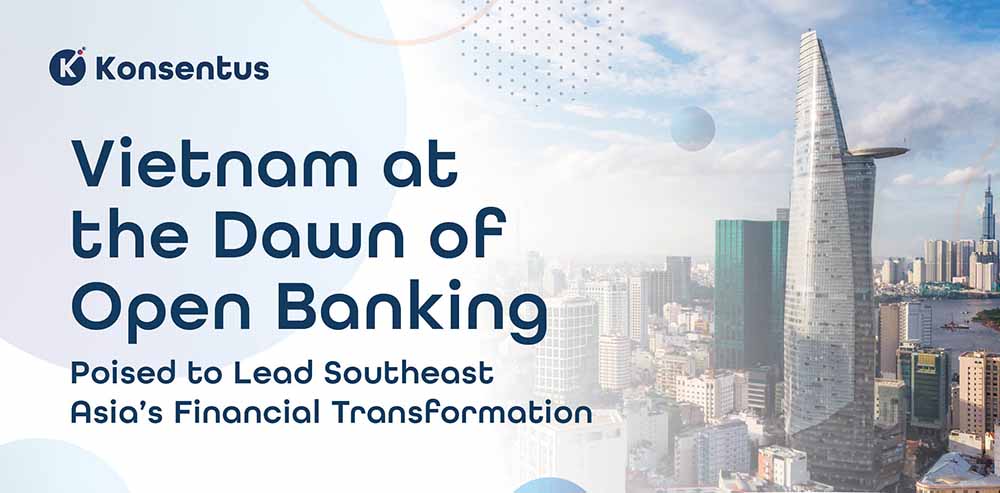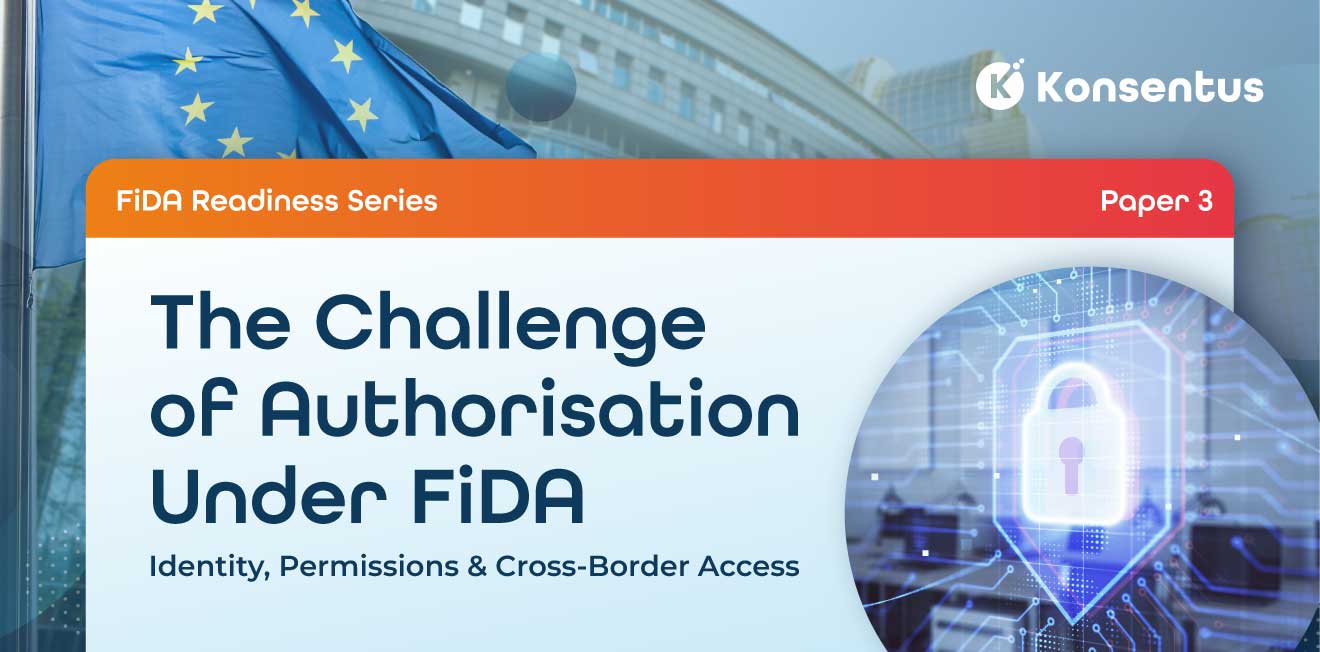A Nation Ready for Change
Across the world, open banking has emerged as a catalyst for innovation, competition and inclusion in financial services. By enabling banks to securely share customer-permitted data with trusted third parties through open APIs, open banking empowers individuals and businesses to access better, more personalised financial services.
For emerging markets, the promise is even greater: open banking can democratise finance, extend credit to underserved groups and accelerate the digital economy. Few countries are better positioned to seize this opportunity than Vietnam, where a vibrant fintech sector, strong government leadership and a digitally savvy population are converging to create a fertile ground for transformation.
Vietnam’s Digital and Financial Landscape
Vietnam’s financial ecosystem has undergone a remarkable transformation over the last decade. Once heavily cash-dependent, the country is now one of Southeast Asia’s fastest-growing digital markets. The fintech sector alone was valued at around USD 15.7 billion in 2024 and is forecast to exceed USD 50 billion by 2030 – a compound annual growth rate of more than 21 percent.¹
The State Bank of Vietnam reported at the end of 2023 that 87% of adults had at least one payment account, compared to just 31% a decade earlier.² This marks one of the most rapid shifts towards financial inclusion anywhere in the region.
Digital wallets are at the heart of this transformation,³ Behind these figures lies a fundamental shift in consumer behaviour: Vietnamese households and businesses are turning to digital services as their default method of transacting.
This shift has been enabled by high levels of connectivity. It is reported that nearly 79% of the population is online, with smartphone penetration above 84%.⁴ Mobile coverage is near-universal and many people maintain more than one device or SIM connection. The infrastructure is in place for digital financial services to reach the majority of citizens, including those in rural communities. This creates the perfect foundation for the next leap forward: a nationwide open banking ecosystem.
Regulatory Momentum
The State Bank of Vietnam has played an important role in shaping this digital future. Its Digital Transformation Plan to 2025 with orientation to 2030, sets out a clear roadmap for modernising banking and financial services,⁵ while the National Financial Inclusion Strategy 6 aims for universal access to affordable financial services by the end of the decade. These programmes reflect the recognition that a strong digital financial sector is central to Vietnam’s broader ambition of building a competitive, technology-driven economy.
In practical terms, SBV has already introduced regulatory sandboxes to allow banks and fintechs to experiment safely with new technologies. It is also developing a legal framework for open banking that will bring clarity to issues such as data sharing, consumer consent and the participation of third-party providers. Meanwhile, government initiatives such as Cashless Day have been designed to promote electronic payments and accelerate the shift away from cash.
Vietnam’s approach is measured and forward-looking. By studying the lessons of mature markets such as the UK and Europe, while tailoring standards to local needs, the authorities are ensuring that open banking becomes more than a compliance obligation. Instead, it will be an enabler of innovation, competition and inclusion.
Building the Foundations
To prepare for this transformation, Konsentus has worked with stakeholders in Vietnam to put in place a robust blueprint for its future open banking ecosystem. This includes clear definitions of roles and responsibilities for banks, fintechs and regulators and proposes standards for API development, consent management and data security. Importantly, the framework has been designed with a security-first philosophy to protect consumers and to build trust from the very beginning.
The framework also sets out governance models to guarantee transparency and accountability, alongside customer-centric principles that ensure individuals remain in control of their data. Technical interoperability, aligned with international best practice, will allow Vietnamese banks and fintechs to connect seamlessly while still tailoring solutions to local conditions.
These foundations mean that when open banking is formally launched, Vietnam will be able to proceed with confidence. Rather than patchwork adoption, the country will benefit from a coherent and trusted system that fosters competition while protecting consumers.
Unlocking the Opportunities
The opportunities that open banking brings to Vietnam are manifold. By giving third parties access to secure and standardised APIs, the system will enable the creation of entirely new services – from personal finance apps that give customers a consolidated view of their accounts, to digital credit platforms that provide small businesses with near-instant lending decisions.
Open banking also has profound implications for financial inclusion. Despite major progress, around 13% of adults remain unbanked.7 Many more have accounts but have limited access to products such as credit or insurance. Open banking can close these gaps by enabling alternative credit scoring models and new delivery channels that make services more affordable and accessible.
The economic benefits are equally significant. By reducing the cost of financial services and widening access to credit, open banking will empower households to save and invest, while giving SMEs the resources they need to grow,8 open banking will play a pivotal role as a driver of productivity and innovation.
Finally, by establishing clear rules and a strong trust framework, open banking will strengthen financial stability. Regulators will have greater visibility of digital transactions, fraud risks will be reduced through standardised security and consumers will have greater control and transparency.
Supporting National Objectives
What makes open banking particularly powerful in Vietnam is how closely it aligns with national objectives. It advances the government’s digital transformation agenda by shifting financial services into an API-driven, customer-first model. It accelerates the move towards a cashless society by enabling direct account-to-account payments that are faster and cheaper than cash or cards. It deepens financial inclusion by ensuring that innovation reaches every part of the country, from the major cities to rural provinces. It also strengthens Vietnam’s competitiveness within Southeast Asia, giving the country the chance to become a model for other emerging markets.
A Vision for Regional Leadership
Vietnam has already demonstrated extraordinary progress, achieving near-universal account ownership, rapid adoption of digital payments and the rise of a thriving fintech ecosystem in little more than a decade. The next leap, into open banking, promises to be even more transformative.
With strong regulatory support, a clear framework already in place and a population eager to embrace digital services, Vietnam is poised to lead Southeast Asia’s open banking charge. The journey will require collaboration across government, banks, fintechs and technology providers, but the prize is clear: a financial system that is more innovative, more inclusive and more resilient.
In doing so, Vietnam has the opportunity not just to modernise its own financial services, but to set a benchmark for the region. The open banking revolution in Southeast Asia may very well carry the words “Made in Vietnam” – a testament to the country’s vision, adaptability and determination to shape a digital future.
1 Research & Markets (2025), Vietnam Fintech Market Report 2025–2030
2 State Bank of Vietnam (2024), Press briefing on Cashless Day
3 State Bank of Vietnam (2024), Payment System Statistics
4 DataReportal (2025), Digital Vietnam Report
6 Government of Vietnam (2020), National Financial Inclusion Strategy to 2025 with Vision to 2030
7 World Bank (2021), Global Findex Database
8 International Trade Administration (2024), Vietnam Country Commercial Guide

Brendan Jones
COO, Konsentus





